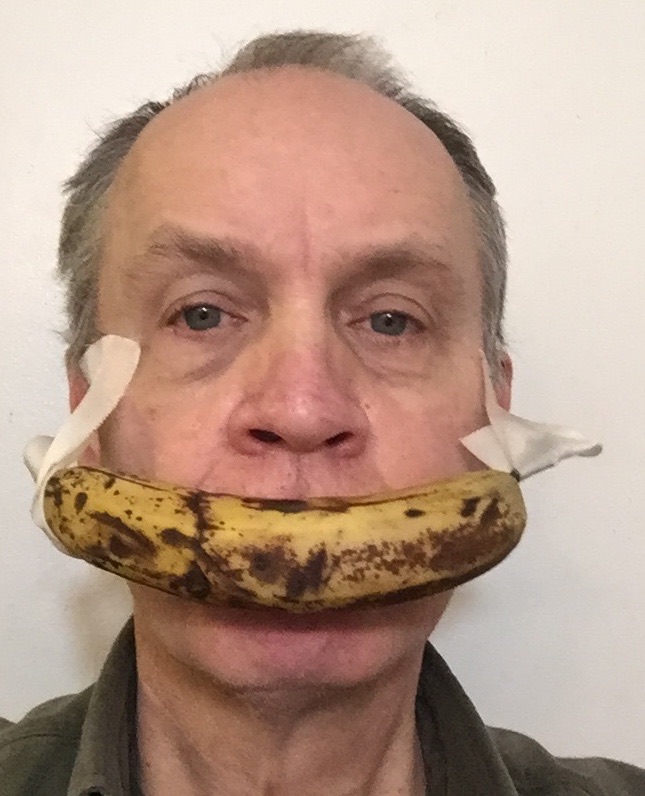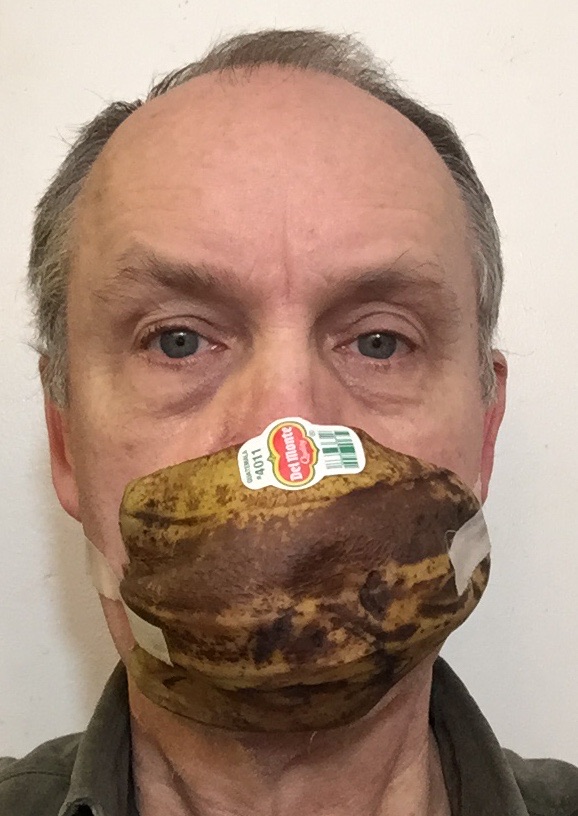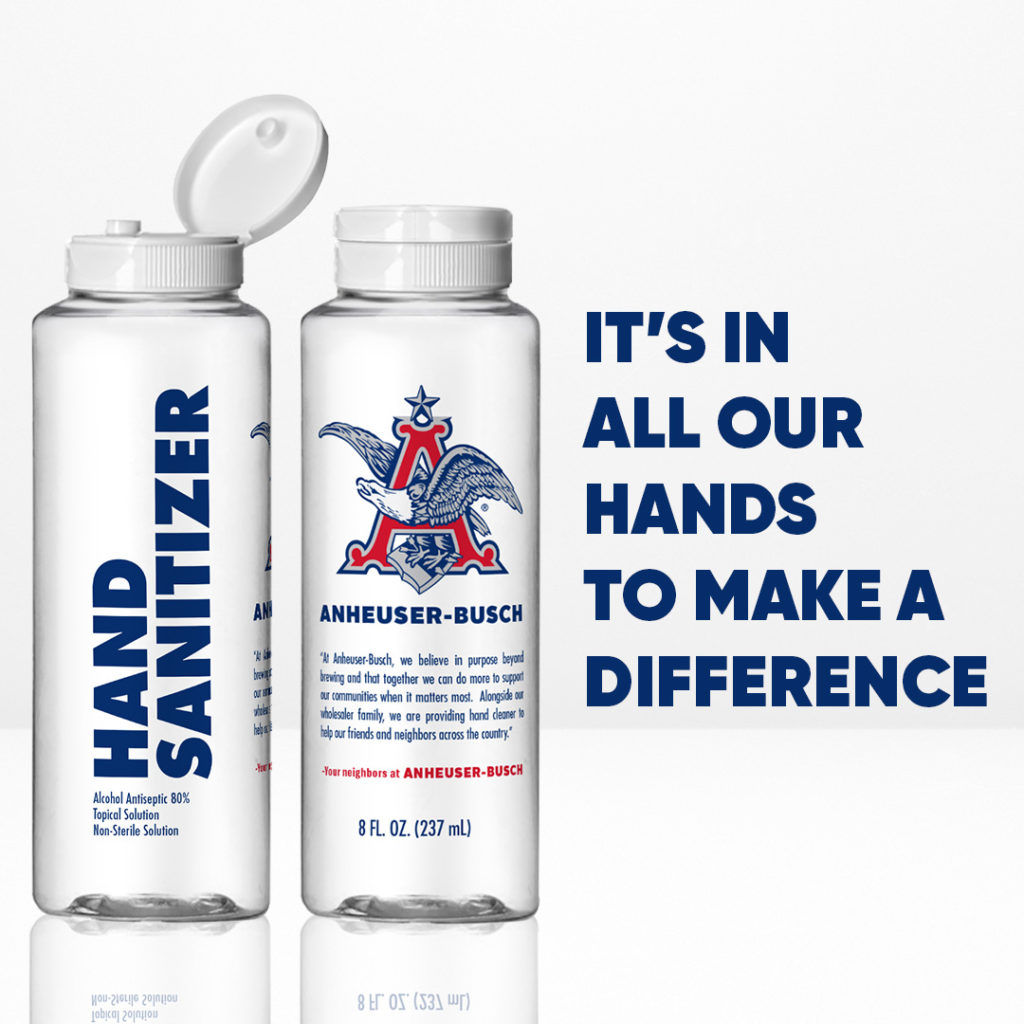
I saw where if you couldn’t find a mask to wear in public, you could wear a banana instead.
I fail to see where this is going to help anything.
Perhaps I’m wearing it wrong.

Never mind.
I figured it out.

Writes all the things. Most of the things never write back.

I saw where if you couldn’t find a mask to wear in public, you could wear a banana instead.
I fail to see where this is going to help anything.
Perhaps I’m wearing it wrong.

Never mind.
I figured it out.

This is a nice gesture by Anheuser-Busch, but it is FAR TOO DANGEROUS to be made available to an unsuspecting public.
I mean, if the public can’t be trusted not to drink fish tank cleaner when hydroxychloroquine is mentioned as a possible COVID-19 treatment, how can we trust them not to guzzle THIS down when it has the A-B logo RIGHT ON IT?!?
I posted this message in response to a friend who is among the more vulnerable to coronavirus, and modified it slightly to post it on my own Facebook page:
I’ve been hearing some try to minimize the precautions we’ve seen thus far against the coronavirus. Some have even ridiculed it all.
I would ask you to consider that some of these precautions are not so YOU won’t get the coronavirus, which you figure you’ll handle just fine. It’s so you don’t act as a vector for COVID-19 and SPREAD it to someone who is more vulnerable than you. Keep in mind that the best information we have now says YOU ARE CONTAGIOUS before you start showing symptoms YOURSELF.
Sorry for your inconvenience, but this is more than just “all about you.”
And, by the way — why weren’t we all washing our hands and employing reasonable social practices minimizing the spread of things like this — AND THE FLU, which has been killing tens of thousands EVERY YEAR — ALL ALONG?!?
Some of the news coverage has been shallow and sensationalist. But if you listen to it, some fairly shocking facts emerge. You are several more time more likely to die of coronavirus than the flu if you’re over 60, especially if you have “compicating medical conditions.” Like heart disease. Or respiratory disease. Or diabetes. Or high blood pressure. A LOT of people over 60 have high blood pressure.
And I just learned something new yesterday. The pneumonia that older people are getting as a complication of coronavirus? It’s not bacterial pneumonia, as initially thought. It’s ARDS – acute respiratory disease syndrome. The Wikipedia pages states that OF THOSE WHO SURVIVE (my emphasis), a decreased quality of life is relatively common.
And ARDS is what killed so many, so quickly, during the Spanish flu of 1918. The mortality rate of ARDS is 36-52%.
This is NOT the flu. It’s both more communicable and several times more deadly. It’s worth taking it seriously.
In 2020, the February full moon is on Sunday, February 9, so if you have a date for February 14, they’re probably not a werewolf.
Not a lunar werewolf, anyway.
(If YOU’RE the werewolf, you’ve already taken this into account on your calendar.)
I pride myself on making fresh shiny new mistakes.
I hate making the same mistake twice when there are so many mistakes I haven’t tried yet.
Remember this, if you can. There is nothing more precious than time. You probably feel you have a measureless supply of it, but you have not. Wasted hours destroy your life just as surely at the beginning as at the end, only in the end it becomes more obvious.
— Herman Wouk, The Cain Mutiny
“I discovered that I could make a fairly ambitious story via fragments,” he told me, in the interview.
“I didn’t have to have a through line or a plan, didn’t have to know where it was going… If you trimmed all the fat out of a bit, it would start to thrum with meaning—and then, all of a sudden, it would have something it wanted to cause. So there would be these, like, vital bits on the page, not linked to anything yet. And then structure became just linking up those vital bits, looking for the simplest way to connect them.
So, if you cut all the lazy shit out of a story, what’s left will tell you what structure to put in place so that none of those good bits need to be lost. And then you are trying to arrange them so that they are in causal relation to one another.”
~ from “How to Imitate George Saunders” by Benjamin Nugent
A promise is a way of laying claim to an uncertain future. It is a way of projecting oneself into the coming months, protecting a commitment that may be impossible to keep. It is also a means of guarding or binding one’s identity—the I in I promise.
— John Kaag and Skye C. Cleary, Advice on New Year’s Resolutions from Kierkegaard and Nietzsche, theparisreview.org
Advice on New Year’s Resolutions from Kierkegaard and Nietzsche
This may be more than you ever wanted to know about hyphens, en dashes, and em dashes. But if you’re a writer, these distinctions matter.
Chicago Manual of Style Online — Hyphens, En Dashes, Em Dashes
“Writing practice brings us back to the uniqueness of our own minds and an acceptance of it. We all have wild dreams, fantasies, and ordinary thoughts. Let us to feel the texture of them and not be afraid of them.”
―Natalie Goldberg